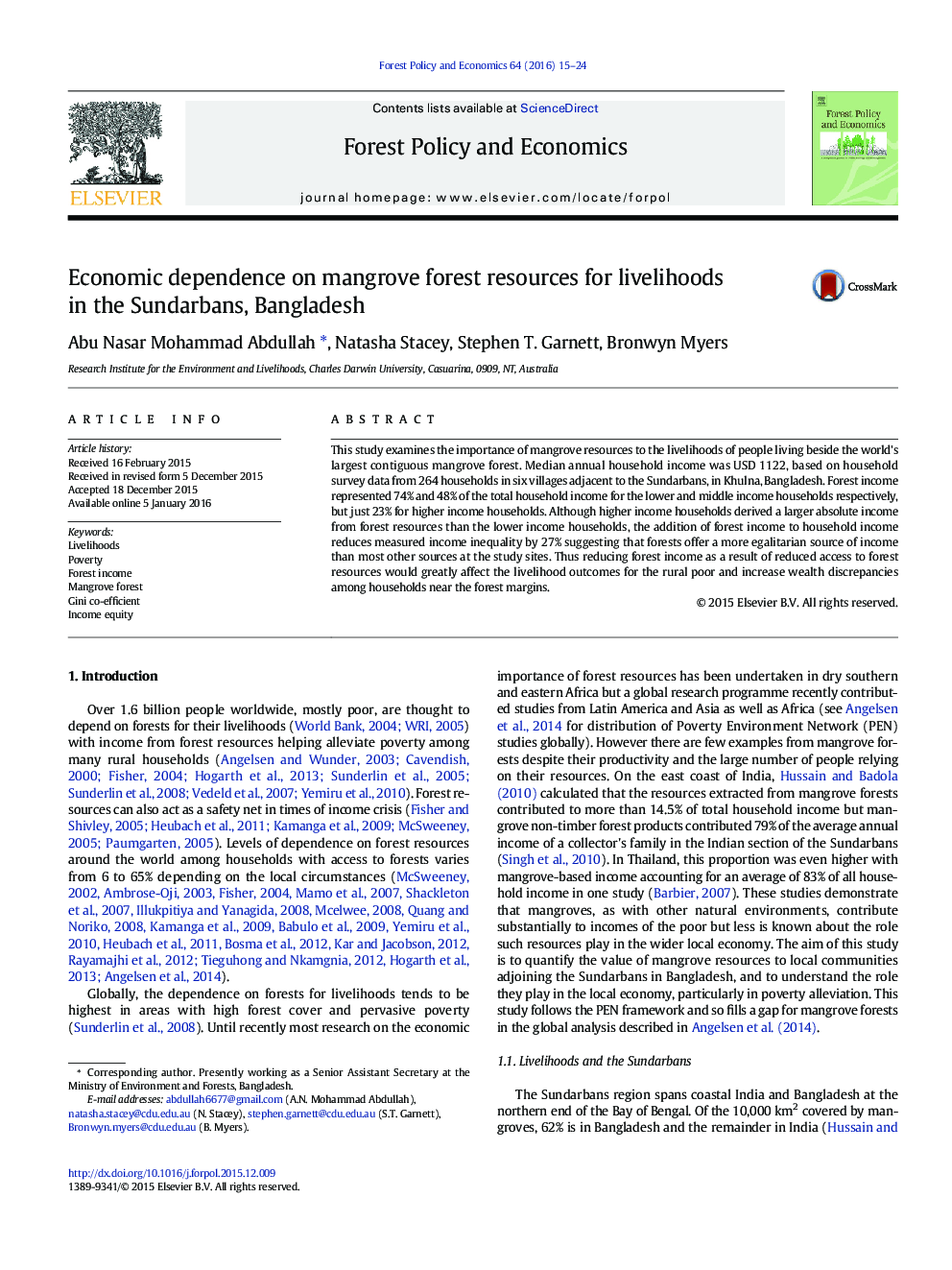| کد مقاله | کد نشریه | سال انتشار | مقاله انگلیسی | نسخه تمام متن |
|---|---|---|---|---|
| 91116 | 159744 | 2016 | 10 صفحه PDF | دانلود رایگان |
• The study quantified the dependence on mangrove forest resources of a poor rural population living near the Sundarbans Reserve Forest in Bangladesh.
• The surveys revealed that the contribution of forest products to household per capita annual income ranged from 23% to 74% for relatively high to low income households respectively.
• Lower income households with limited assets for generating income are highly dependent on the forest resources for their livelihoods but higher income households had a higher absolute income derived from forest resources.
• Landlessness and lack of livestock were associated with greater forest dependency.
• Mangrove forest incomes are important for poverty alleviation and reducing income inequality, and decreased access to forest resources would disproportionately adversely affect the poor.
This study examines the importance of mangrove resources to the livelihoods of people living beside the world's largest contiguous mangrove forest. Median annual household income was USD 1122, based on household survey data from 264 households in six villages adjacent to the Sundarbans, in Khulna, Bangladesh. Forest income represented 74% and 48% of the total household income for the lower and middle income households respectively, but just 23% for higher income households. Although higher income households derived a larger absolute income from forest resources than the lower income households, the addition of forest income to household income reduces measured income inequality by 27% suggesting that forests offer a more egalitarian source of income than most other sources at the study sites. Thus reducing forest income as a result of reduced access to forest resources would greatly affect the livelihood outcomes for the rural poor and increase wealth discrepancies among households near the forest margins.
Journal: Forest Policy and Economics - Volume 64, March 2016, Pages 15–24
